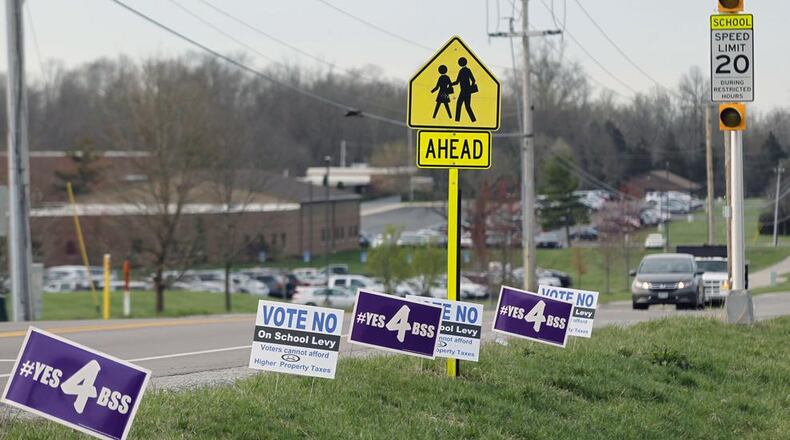They’ll also reinstate 31 small supplemental contracts (often a few thousand dollars each) to bring back advisors so that certain canceled clubs, activities like a spring play and two sports teams can resume.
And they’ll hire two library media specialists, so that all school libraries can be open regularly, rather than 2-3 days a week as they are now.
“These are very hard decisions. In an ideal world, we would love to bring back all the reductions … but the financial piece of that is just not wise,” Superintendent Doug Cozad said. “We have to let the budget guide us to determine what things come back or go away. We also need to think not just of the next year or two financially, we have to think 3 or 5 or 7 or 10 years in the future.”
Voters in the school district have rejected three consecutive levies, the past two by 52-48 and 53-47 ratios. A group of vocal levy opponents have called for the district to cut salaries, saying property taxes are too high. District officials point to a state performance audit showing Bellbrook salaries are in line with comparable school districts and that residents’ tax burden is comparatively low.
The May 4 vote is on a seven-year 4.9-mill levy that would raise $3.22 million per year and cost the owner of a $100,000 home $171.50 per year.
If the May levy is rejected, the board said Bellbrook-Sugarcreek schools will eliminate 2-3 teaching positions this summer, not via layoffs, but by declining to replace staffers who retire or resign.
Cozad said extreme cuts would not be made in case of a May levy failure. That’s because if a subsequent November levy would pass, the district would still get the levy money in early 2022, the same as if it had passed in May.
Bellbrook-Sugarcreek schools have cut staff, busing and activities the past few years. Those moves, offset by cost increases elsewhere, have kept district spending flat at $29.8 million for 2018-19, 2019-20 and projected for 2020-21, according to the district’s own five-year forecast.
But expenditures have exceeded revenues those three years, causing the district’s cash balance to continue to drop, and leading to repeated levy requests.
About the Author

